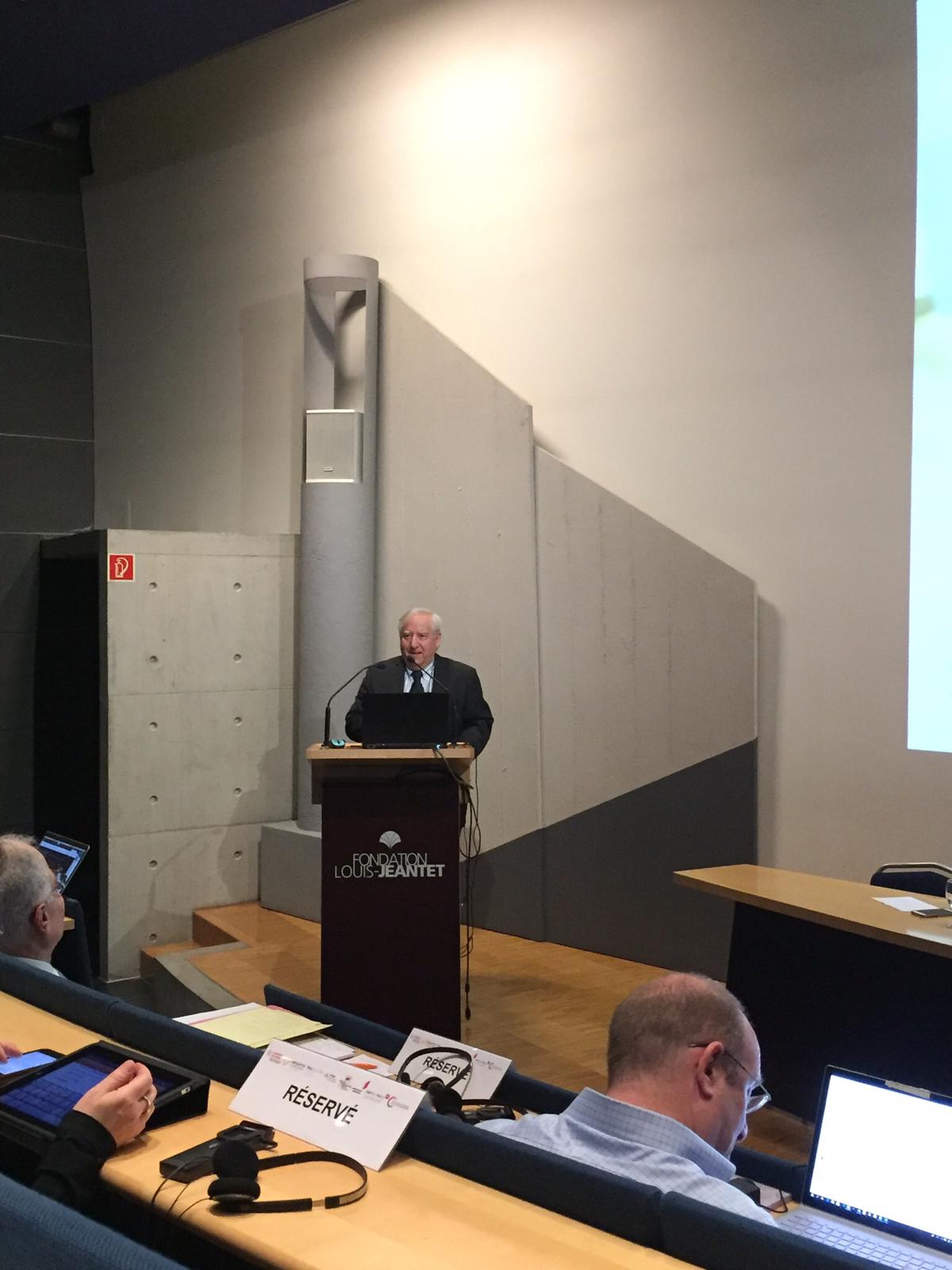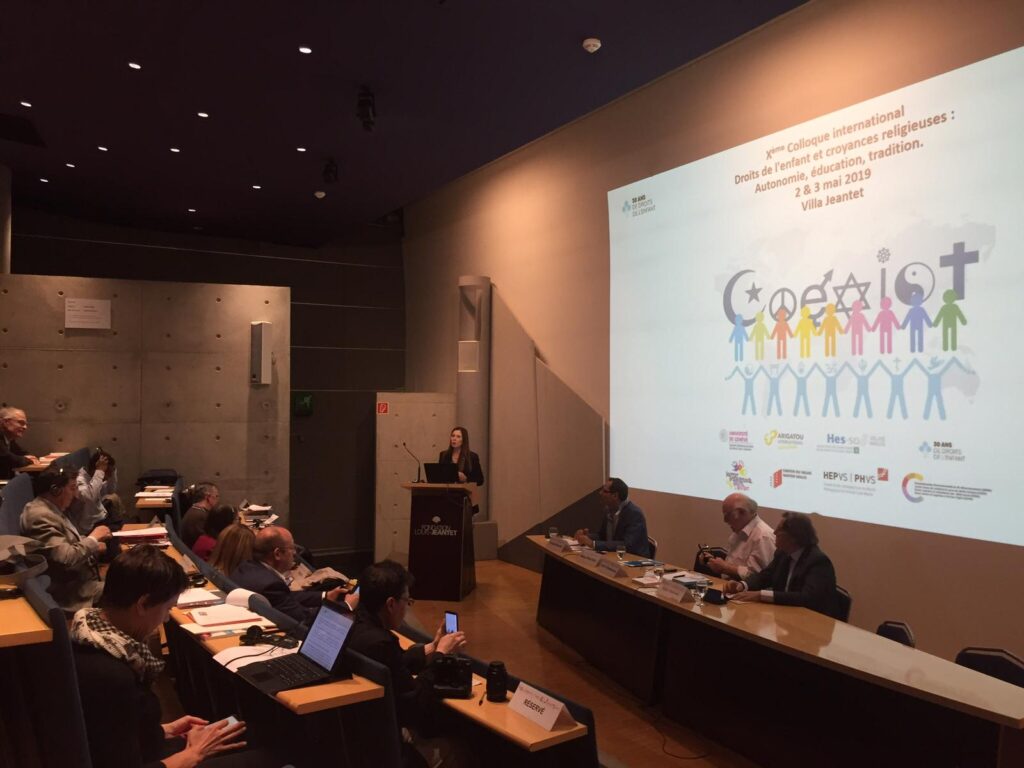
In an increasingly globalized world, where the religious landscape is constantly evolving, discussing the right of the child to self-determination in religious beliefs and the extent of the role of the parents and caregivers in guiding them has become an urgent issue.
Arigatou International – Geneva, together with the Centre interfacultaire en droits de l’enfant of the University of Geneva and other partners, co-organized the 10th International Conference on Children’s Rights and Religious Beliefs: Autonomy, Education, Tradition, which took place on the 2th through the 3rd of May 2019, in Geneva, Switzerland.
“If we make the most of our differences, we can all benefit from each other’s different knowledge, competencies, and skills,” Cheikh Khaled Bentounes, founder of the International Day of Living Together.
Through an in-depth reflection on this complex issue, this international conference sought to strengthen the dialogue and knowledge regarding the child’s freedom of religion, and promote awareness on children as rights-holders.
During the presentations, participants discussed some of the concerns and reservations made on religious grounds to the CRC. They highlighted the best practices regarding the tension between the parents’ right to guide the spiritual development of children and the children’s right of self-determination, and built on experiences and lessons learned in engaging with children who are either victims of or vulnerable to incitement of violence in the name of religion. Finally, speakers reflected on the role of interreligious education in secular societies and its compatibility with the secular view of the State and the right to an education that respects the identity of the child.
“Curriculum developers need to retrieve the very essence of the meaning of education, which is to help children develop to their full potential, according to their evolving capacities, not just intellectually, but also emotionally, relationally and spiritually,” said Mr. Andrés Guerrero, Senior Advisor, Arigatou International – Geneva, while reflecting on how intercultural and interreligious education programs can, “Facilitate learning processes that favor dialogue, empathy towards the other, discover oneself in relation to others and build a sense of belonging to a common humanity.”
He later shared about “Learning to Live Together: An Intercultural and Interfaith Programme for Ethics Education”, which has not only helped address a wide range of concerns, including non-violent conflict resolution, racism, discrimination or exclusion, but also youth empowerment, conflict transformation, reconciliation, interfaith collaboration and social cohesion, reaching about 450,000 children and young people in more than 30 countries.
We thank the co-organizers, Centre interfacultaire en droits de l’enfant, Université de Genève, Haute école pédagogique Valais, St-Maurice & Brigue Haute École de Travail Social, Institut international des Droits de l’enfant, and Sion Service cantonal de la jeunesse; as well as the Office of the United Nations High Commissioner for Human Rights, Comité des droits de l’enfant aux Nations Unies, and Swiss Center of Expertise in Human Rights for their collaboration.
